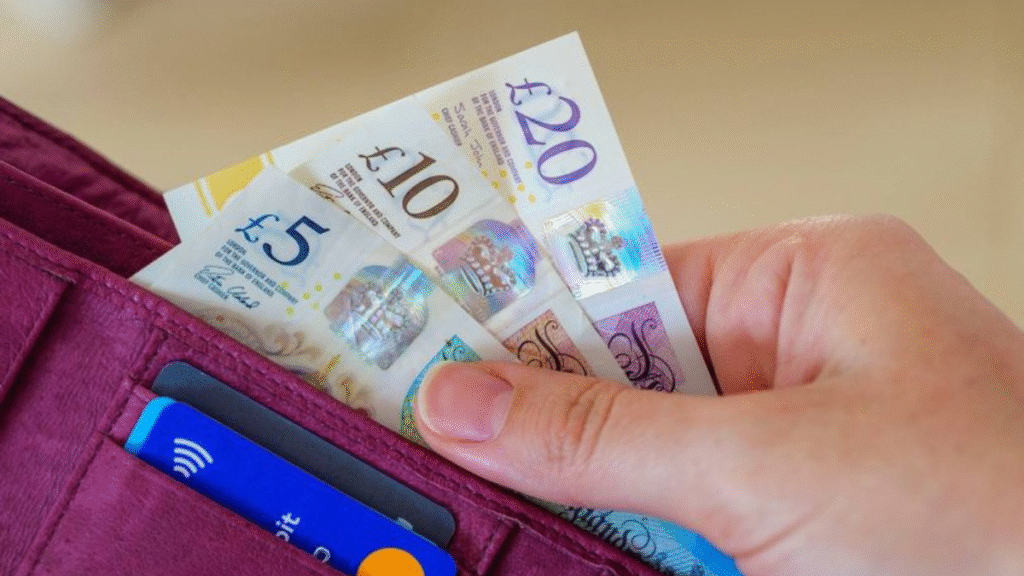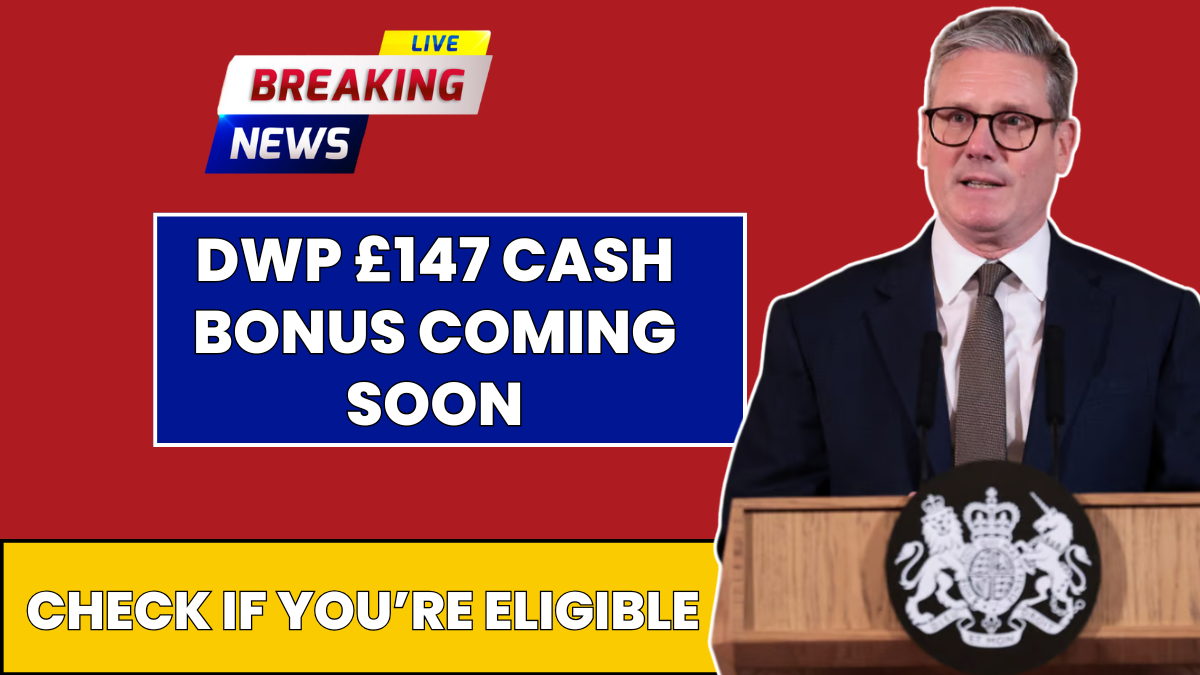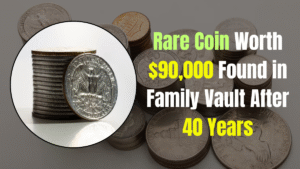With the cost of living DWP continuing to weigh heavily on households across the UK, any form of support can feel like a lifeline. If you are a tenant of Solihull Community Housing and use biomass heating, the recent £147 energy bill credit offered through the Household Support Fund could make a real difference to your winter budget. This support is not a cash payment to your bank account; instead, it is a direct credit applied to your energy meter. To help you understand everything from who qualifies to how to apply, we have put together this guide—packed with useful detail, real examples, and simple explanations.
What Is This Energy Bill Credit?
This initiative is part of the Household Support Fund, a UK government scheme designed to provide targeted help to households in need. Rather than offering cash directly, which can be used for any purpose, this credit is specifically applied to your energy meter. That means you won’t receive £147 in your bank, but your next bill will be lower by that amount.
But why is it focused on biomass heating? The answer lies in fuel costs. Homes off the mains gas grid often rely on wood pellets, logs, or even wood chips—fuels that can cost much more than natural gas. As energy prices rose over recent years, this group was left out of many of the broad price guarantees or discounts aimed at gas users. The Solihull scheme therefore fills a gap, relieving pressure for some of the most vulnerable households.
Who Is Eligible?

To access this energy credit, you must meet several clear criteria:
- You must be a Solihull Community Housing tenant
This fund is not open to homeowners or private renters in Solihull. If you live privately, you may still qualify for other grants, but you will need to explore those separately. - Your primary heating must be biomass
That includes systems like wood pellet boilers, wood stoves or multi-fuel burners, logs, or wood chips. You may need to provide official receipts or evidence of the type of boiler or fuel used. - Your household income must be £31,000 or less per year before taxes
Because this is a means-tested scheme aimed at low-income households, income above that threshold would make you ineligible. - You must have little or no savings
Full rule applies: no savings unless you are pension-age, in which case you may hold up to £10,000. - At least one person in your home must face vulnerabilities
This might include long-term health issues, visible debts such as rent or council tax arrears, or receipt of disability-related benefits like Personal Independence Payment or Disability Living Allowance.
Meeting all of these requirements qualifies you for the full £147 credit without needing to repay it.
Why This Credit Is Important
Ofgem reports that even after recent interest rate falls, average household energy bills remain around £1,800 per year—sometimes more for those off-grid. Biomass heating users already pay a premium for fuel like pellets or logs. Without gains from cheaper gas tariffs or utility rebates, they were left carrying a disproportionate share of rising costs.
For households on low incomes or those already facing health or mobility issues, an extra £147 applied directly to heating can ease another tough winter. It may sound small, but for many families, that is enough to cover several weeks’ worth of fuel—leaving more money for groceries, clothing, or even warming non-heated rooms like hallways or bathrooms.
How to Apply
Here is a step-by-step guide to the application process:
1. Gather your documents
Before you apply, make sure you have all the required paperwork ready. You will need:
- Proof of income (benefit award letters or recent payslips)
- Recent energy bill or a screenshot from your smart meter
- Receipts or boiler invoices showing use of biomass heat
- Proof of tenancy from Solihull Community Housing
- Evidence of vulnerability (disability letters, DWP notices, or council letters about debt)
2. Visit the Act on Energy website
Act on Energy administers these payments on behalf of Solihull Council. Head to their site and look for the “Household Support Fund” section where the online form is posted. You will be guided clearly through each step.
3. Complete and submit the form
Fill in your details and upload the documents. Upon submission, you should receive a confirmation email or reference number.
4. Await approval
Processing typically takes two to three weeks. If your application succeeds, the £147 credit will automatically be added to your energy meter or utility account.
5. Follow up if needed
If you have not heard back after three weeks, contact Act on Energy or your housing officer to check on your status.
A Real Life Story: Sarah’s Experience

Sarah is a single mother of two living in Solihull Community Housing. Her home uses a wood pellet heating system. She earns £28,000 a year and also receives Personal Independence Payment for her long-term health condition.
When Sarah applied online, she submitted all her documents at once. After just under three weeks, she received confirmation that her energy meter had been credited. The £147 difference in her next bill meant she could use the savings to pay for heavier groceries and put much-needed clothes for her children on her shopping list. For her, the credit translated directly into peace of mind and stability.
Why You Should Apply No
Applications are accepted until March 31, 2025—or until funding runs out. Since it operates on a first-come, first-served basis, the sooner you apply, the better your chances. Even if your income check out differently next month, the deadline will not move, and funds may run low before March ends.
Extra Support: What Else Is Available?
While the £147 credit is targeted and useful, it is only part of a larger network of support:
- Household Support Funds may be available in your area through local councils
- Cold Weather Payments are offered when temperatures fall below freezing for seven consecutive days
- Warm Home Discount can give eligible households £150 off winter fuel bills through suppliers
It is a good idea to check all possible sources of assistance and apply broadly where you qualify.
Conclusion
If you live in Solihull Community Housing, rely on biomass heating, and meet the criteria we have outlined, you stand to gain a meaningful £147 energy credit. It may not sound like much, but for families already stretched thin by inflation and higher energy costs, this could be the difference between eating properly and skipping meals in harsh weather.
To get the credit, prepare your documents, apply online at the Act on Energy site, and plan for a three-week turnaround. Inform yourself, act quickly, and pass the word along—so that others in similar positions can also benefit. In a world where every pound counts, this scheme is a powerful boost for those who need it most.
FAQs
1. What is the £147 cash bonus from DWP?
The £147 cash bonus is part of the 2025 Energy Bill Support Fund launched by the UK government to help eligible households cope with rising energy costs.
2. Who is eligible for the £147 Energy Support Payment?
Eligibility depends on factors such as receiving certain DWP benefits (e.g., Pension Credit, Universal Credit, Income Support) and meeting low-income or vulnerable criteria.
3. When will the £147 payment be made?
The payment is expected to roll out in mid to late 2025. Exact dates may vary by local authority and benefit type.
4. Is the £147 payment automatic, or do I need to apply?
In most cases, the payment will be automatic for those already receiving qualifying benefits. However, in some areas, you may need to apply through your local council.
5. Can people not on benefits receive this support?
Possibly. Some local councils may extend support to low-income households not on benefits, especially those at risk of fuel poverty. You would need to apply directly.


